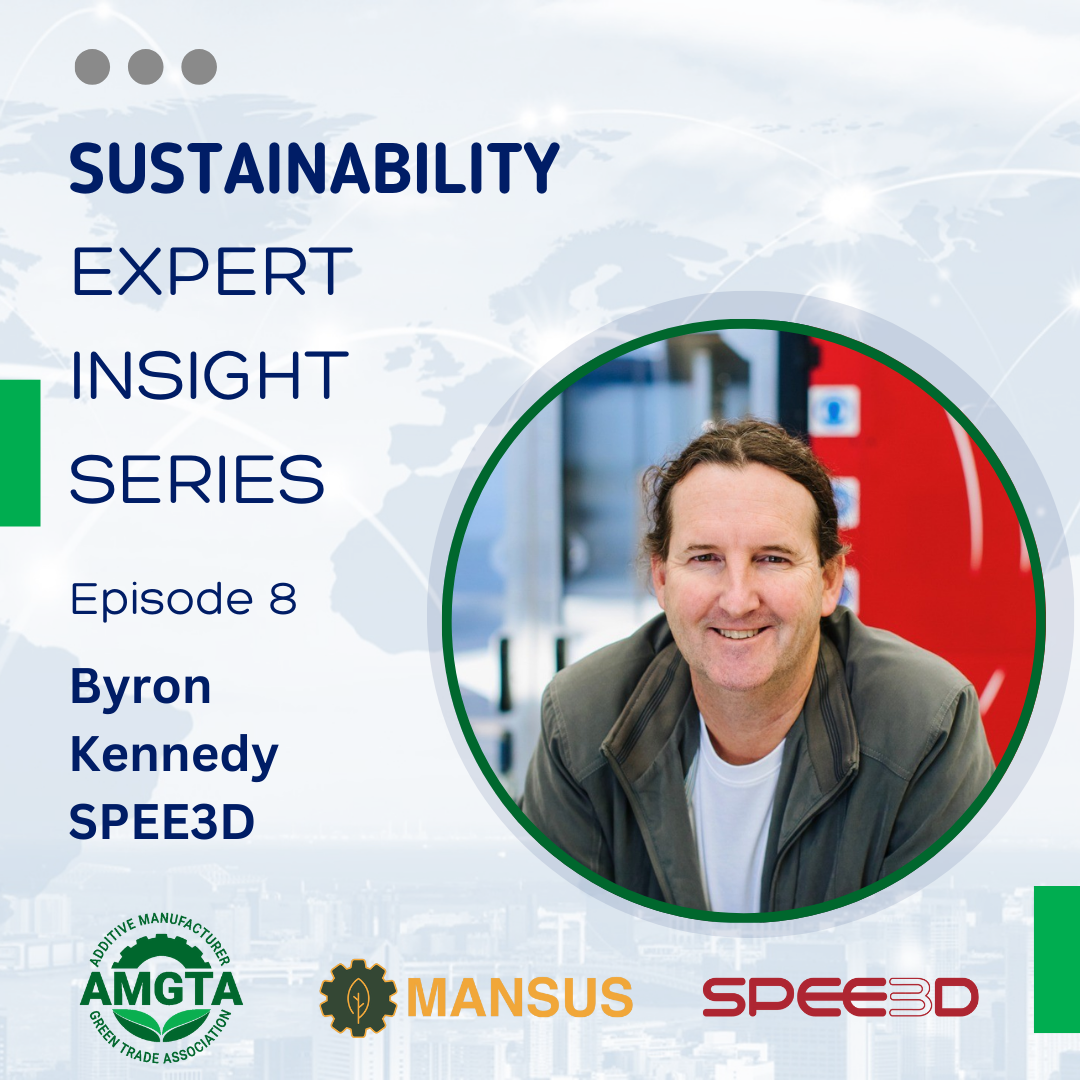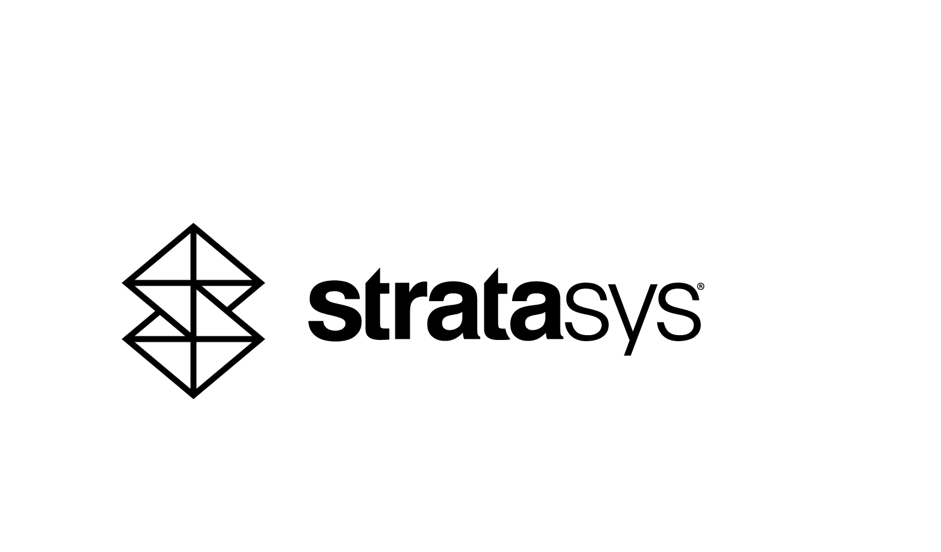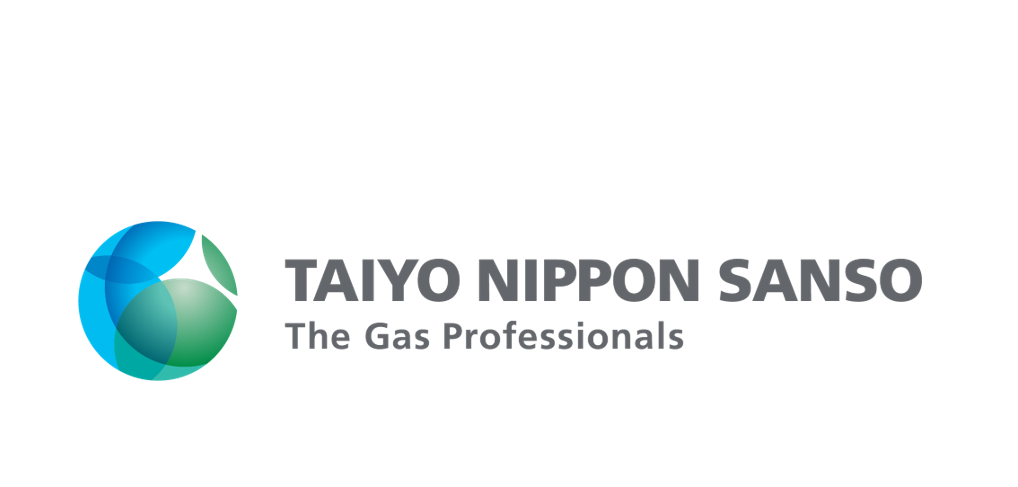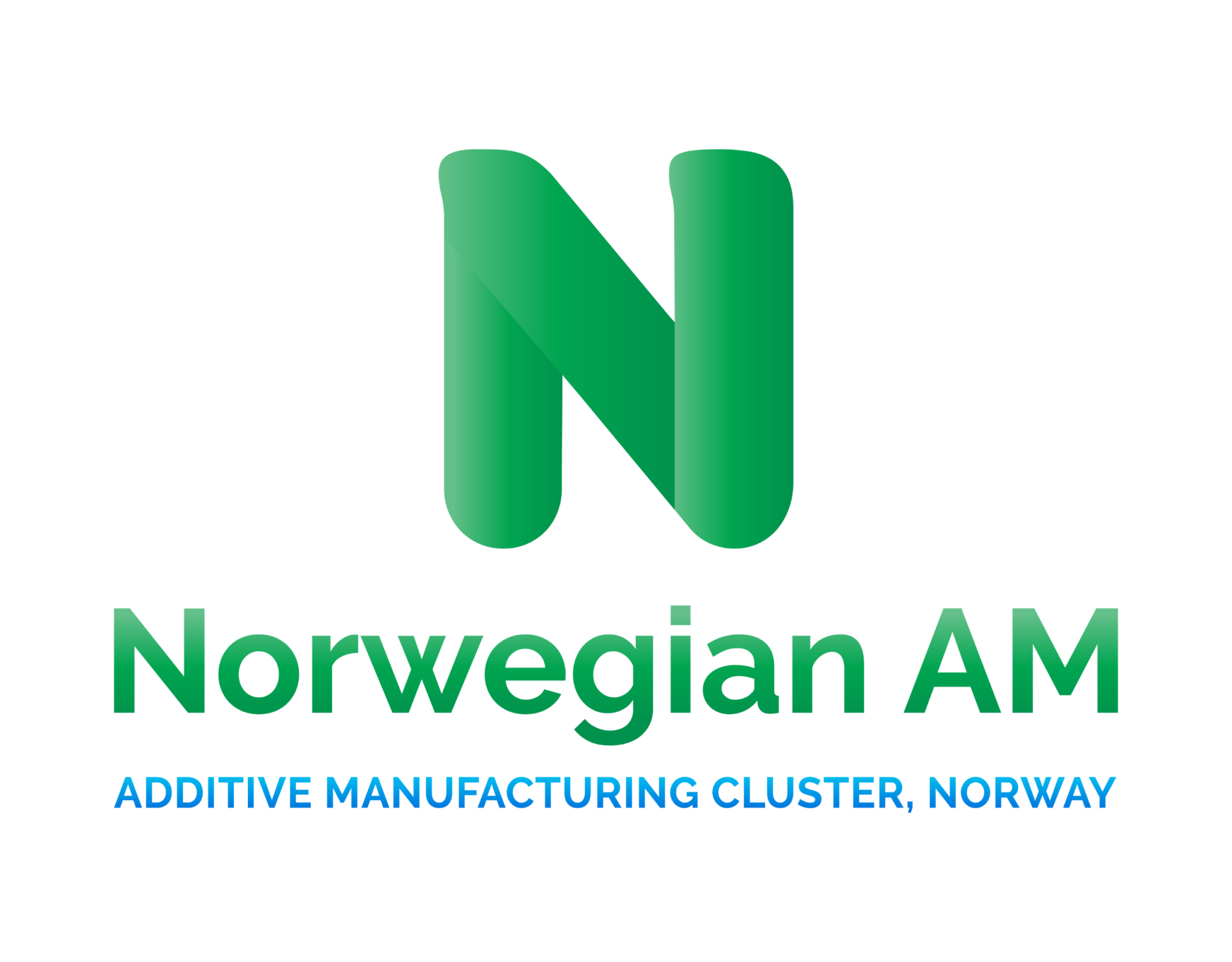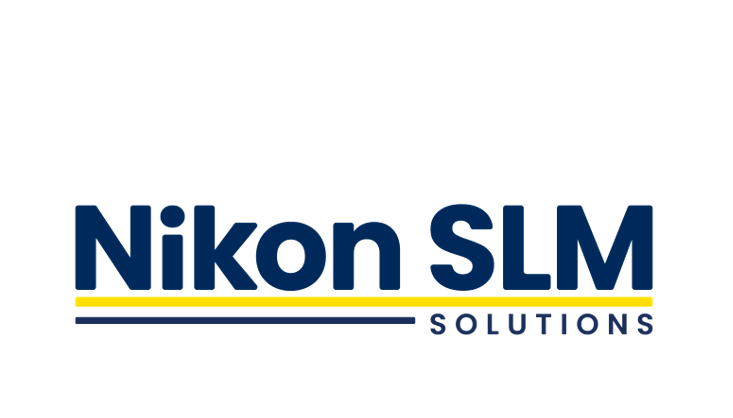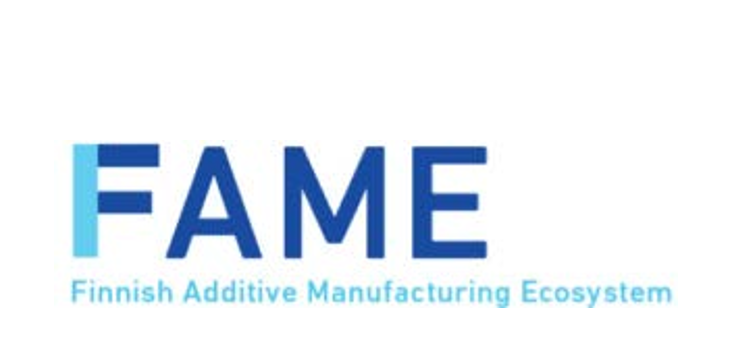February 26, 2025
Sustainability Expert Insights with Industry Expert Byron Kennedy.

Welcome back to another exciting interview series episode! In this episode, Byron Kennedy, CEO of SPEE3D shares insights into how this Australian-based manufacturer of 3D metal printers is transforming traditional processes by enabling safe, rapid, on-demand, and on-site production of metal parts for critical industries, like defense, mining, and oil and gas, while increasing sustainability.
Each episode of this series, presented in collaboration with AMGTA and MANSUS, explores how additive manufacturing can revolutionize industries. From promoting innovation to optimizing resource usage, additive manufacturing is a proven game-changer for businesses looking to meet their economic and sustainability goals.
A Better Alternative to Traditional Metal Manufacturing
Casting is the traditional process of manufacturing metal parts. It can be difficult, expensive, and often poses safety and quality concerns. CEO of SPEE3D, Byron Kennedy shared how the company began approaching this problem with one question: Can we do it better? In response to this question, SPEE3D produces a safer, more cost-effective, and sustainable process that can change how the broader global industry manufactures metal parts.
On-Site Production to Reduce Logistical Challenges
Sourcing materials can be an expensive and logistically complex process for many businesses, particularly in industries like defense and mining, which often operate in remote locations. The traditional method of having parts manufactured elsewhere and then transported over long distances can incur high costs and contribute to environmental harm due to the carbon footprint of transportation.
To solve this dilemma, SPEED3D manufactures a deployable all-in-one metal 3D printing solution, enabling parts to be made on-site from anywhere in the world. This reduces costs, minimizes downtime, uses fewer materials, and addresses front-line logistics and transportation challenges. By eliminating or reducing shipping and transportation, CO2 emissions are also lowered, leading to more sustainable manufacturing.
Collaborative Case Studies
SPEE3D collaborated with two Australian universities to conduct a case study comparing the CO2 and energy emissions of traditionally manufactured processes with the additive manufacturing (AM) processes of SPEE3D. The results showed that the AM process emitted 60% less CO2 and consumed 33% less energy.
Global Collaboration for Increases Sustainability
Byron shared that AMGTA is a global organization focused on sustainability from a worldwide perspective. Its significance lies in bringing together experts, peers, competitors, and suppliers to collaborate on sustainability issues on a global scale. This diverse range of viewpoints and inputs, even when they differ, is essential for shaping the future of sustainability.
Follow the complete series on our website or the MANSUS YouTube channel.

